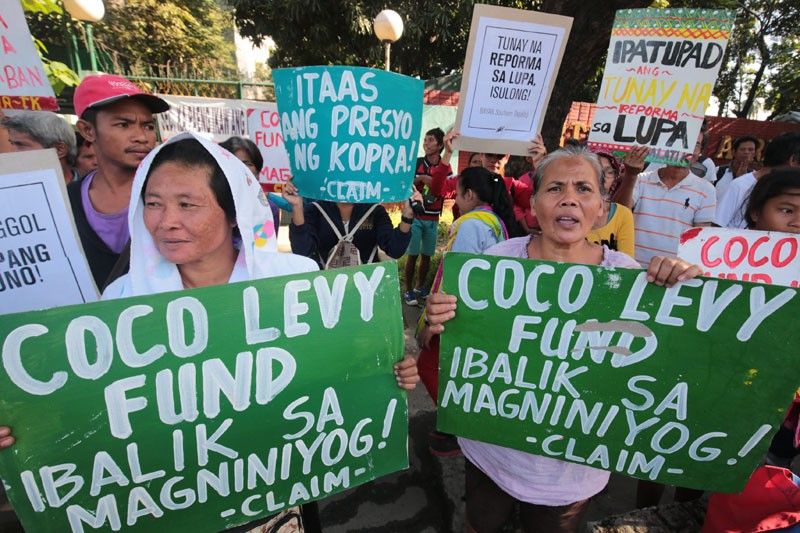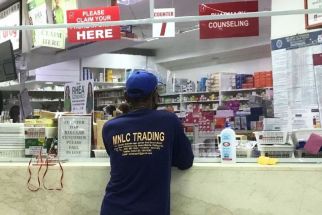Sandigan orders turnover of P83-billion coco levy fund

MANILA, Philippines — More than 30 years after the case was filed, the Sandiganbayan finally ordered the turnover of P83 billion in assets acquired through the Coconut Industry Investment Fund (CIIF) to the government for the benefit of coconut farmers.
In a 14-page resolution dated Aug. 7, the anti-graft court’s Second Division reversed its Dec. 29, 2017 ruling setting more hearings on the case to determine the proper disposition of the coco levy assets.
Instead, the court has ordered the issuance of a writ of partial execution to implement its May 7, 2004 summary judgment, which was affirmed by the Supreme Court (SC) in a landmark decision on Jan. 24, 2012.
In its 2012 decision, the high tribunal declared that CIIF is a “public fund,” thus the firms created through it, including all their assets, must be reconveyed to the government.
The court found merit on the motion for reconsideration of the Presidential Commission on Good Government (PCGG) filed last Jan. 23.
In its appeal, the PCGG said the SC’s 2012 ruling has already become final and executory after it issued an entry of judgment on Dec. 10, 2014.
“Well-settled is the rule that once a judgment attains finality, it becomes immutable and unalterable,” the Second Division said in its new ruling.
Ordered by the Second Division to be transferred under the government were six companies known as the CIIF Oil Mills Group (CIIF-OMG), 14 CIIF holdings companies and these holding companies’ 753.85 million CIIF shares of stocks in San Miguel Corp. (SMC) worth P71.04 billion.
“All income, interest or profits” of these companies as well as all dividends from the shares issued after Sept. 17, 2009 and proceeds from the redemption after Oct. 5, 2012 shall be covered by the writ of partial execution, according to the Second Division.
The Second Division stressed that all the assets to be reconveyed to the government “shall be used only for the benefit of all coconut farmers and for the development of the coconut industry” in accordance with the SC ruling.
In its Dec. 29, 2017 resolution, the Second Division had granted the motion of United Coconut Planters Bank (UCPB) and the United Coconut Planters Life Assurance Corp. (Cocolife) to conduct more hearings on the case.
The UCPB said the execution of the SC ruling would prejudice its assets and corporate investments with the CIIF-OMG. Meanwhile, Cocolife said it might be forced to close down as it stands to lose P7 billion out of its P9.076-billion net worth with the execution of the SC ruling.
In its new ruling, however, the Second Division said UCPB and Cocolife both failed to meet the exceptions to the general rule that judgments that have attained finality become “immutable and unalterable.”
The court said that even if UCPB and Cocolife were not parties to the original case, they are bound by the SC’s 2012 decision settling in favor of the government the ownership of CIIF assets.
Besides, the Second Division said the SC had also denied a similar appeal by the UCPB and Cocolife in an Aug. 11, 2015 decision.
“Evidently, the issue of ownership of the CIIF-OMG, the 14 holding companies and the CIIF block of SMC shares has already been settled with finality. The only thing left for determination of the Court is the matter of execution of judgment,” the Second Division said.
The ruling was penned by Associate Justice Michael Frederick Musngi with the concurrence of Associate Justices Oscar Herrera Jr. and Lorifel Pahimna.
It was in July 1987 when the PCGG filed a civil case against the late strongman Ferdinand Marcos Sr., his wife former first lady and incumbent Ilocos Norte Rep. Imelda Marcos and several of their cronies.
The civil case seeks to recover the ill-gotten wealth allegedly amassed by the Marcos family and their cronies during the martial law regime, including the assets acquired using the coco levy fund.
The PCGG complaint was later divided by the Sandiganbayan into eight cases docketed as Civil Case Nos. 0033-A to 0033-H.
During the martial law period, coconut farmers were made to contribute to the Coconut Industry Development Fund, also known as coco levy fund, for the supposed development of the coconut industry and to give them shares of investments.
In several rulings, the SC said Marcos and his alleged cronies instead used the funds for personal profit, particularly in the purchase of UCPB and a majority stake in SMC.
- Latest
- Trending

























